Skiing and snowboarding can be thrilling, but they also come with risks. By following essential safety tips, you can avoid injuries and make the most of your time on the mountain. Collisions often result from a lack of awareness and not adhering to basic safety rules. Here are 9 crucial ski safety tips to keep in mind:
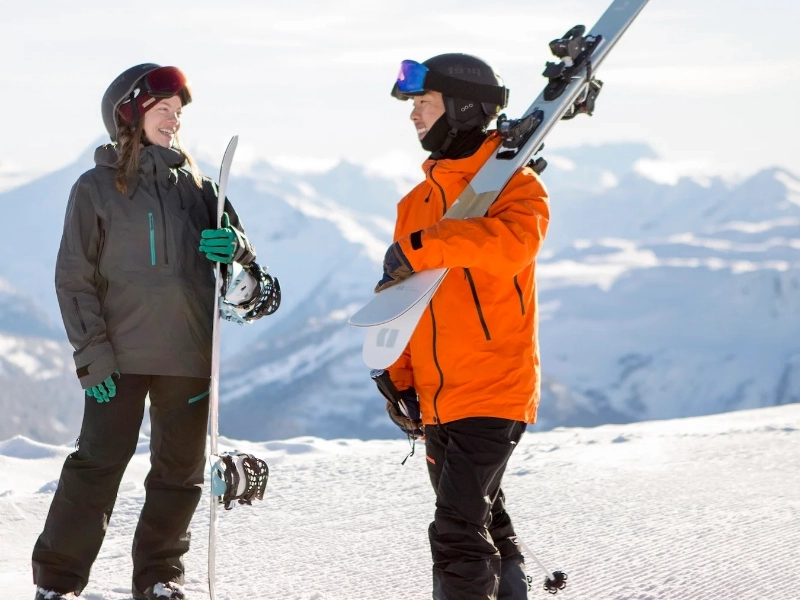
While skiing fatalities are uncommon—about 38 per million ski days—collisions and minor injuries are more prevalent. Wearing the right gear, especially helmets, can greatly reduce your risk of injury. Backpack: A small backpack is useful for carrying extra layers and water. Staying hydrated helps prevent dehydration and altitude sickness. Jacket: Choose a warm, waterproof jacket that allows for comfortable movement. Ensure the sleeves are long enough to cover your hands while wearing gloves. Boots: Get your boots professionally fitted; they shouldn’t be too tight, as this can lead to loss of control and increase the risk of leg injuries. Consider wearing wrist braces and a ski helmet to protect against common injuries.
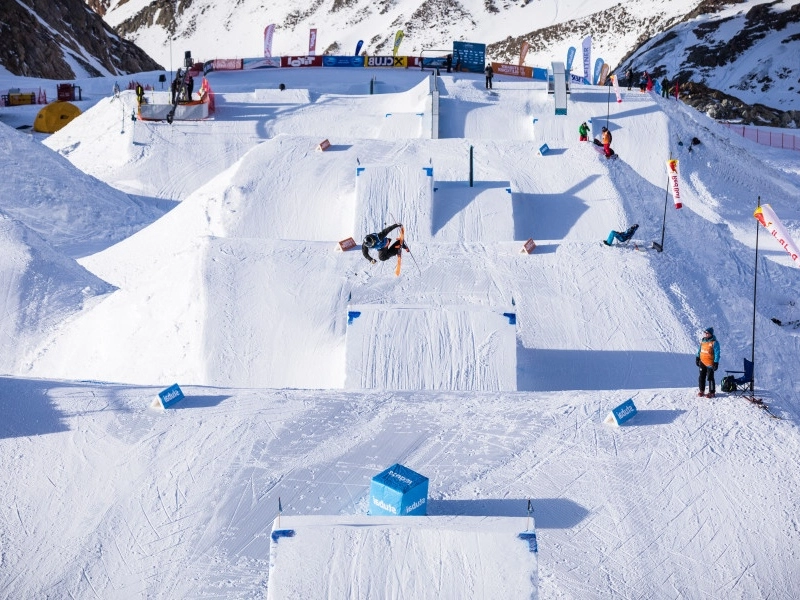
Skiing is exciting, but it can be dangerous if you don’t follow basic rules. Helmets are crucial for preventing head injuries. Always look uphill before turning and be aware of other skiers and snowboarders around you. If you plan to go off-piste, ensure you have essential safety gear like a transceiver, a three-meter probe, and a shovel. Going off-piste without proper equipment or guidance can lead to getting lost or caught in an avalanche.
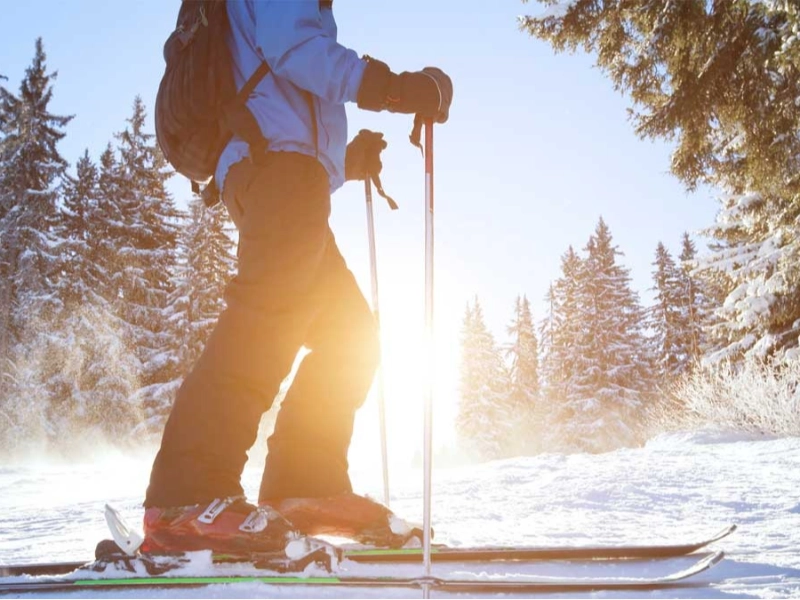 Regardless of your skill level, a momentary lapse in judgment can lead to serious injuries. Knowing mountain safety is vital.
Wear gear that fits your size and abilities. Beginners should take lessons from professionals to learn the basics before skiing independently. Always respect the slopes and follow posted signs to avoid accidents like avalanches or snow immersion suffocation (SIS). Avoid eating snow, as it can contain harmful bacteria.
Regardless of your skill level, a momentary lapse in judgment can lead to serious injuries. Knowing mountain safety is vital.
Wear gear that fits your size and abilities. Beginners should take lessons from professionals to learn the basics before skiing independently. Always respect the slopes and follow posted signs to avoid accidents like avalanches or snow immersion suffocation (SIS). Avoid eating snow, as it can contain harmful bacteria.
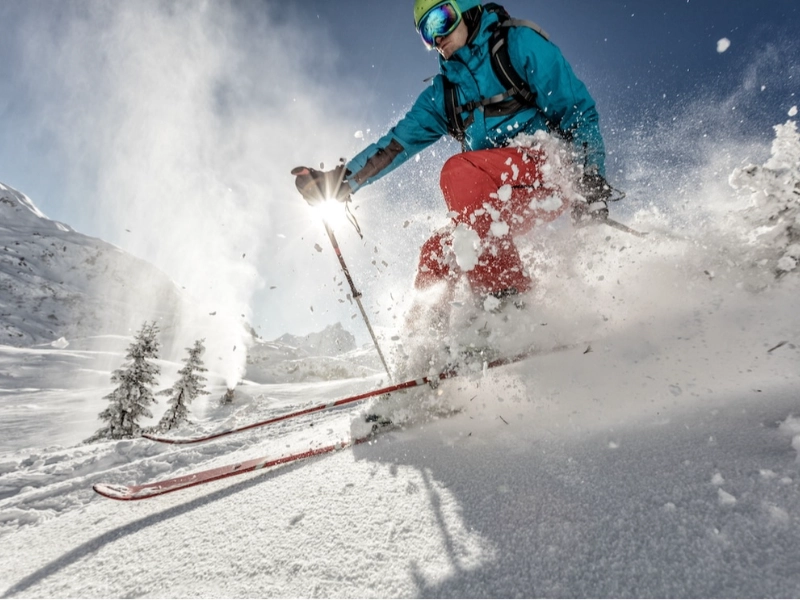 Skiing and snowboarding come with inherent risks, but common sense and adherence to mountain rules can help minimize them. Always ski within your ability level and pay attention to piste signs and weather conditions.
Respect others on the mountain, especially when waiting in lift lines. Avoid blocking paths or interfering with other skiers. If you see someone fall, check if they’re conscious and help them if needed.
Skiing and snowboarding come with inherent risks, but common sense and adherence to mountain rules can help minimize them. Always ski within your ability level and pay attention to piste signs and weather conditions.
Respect others on the mountain, especially when waiting in lift lines. Avoid blocking paths or interfering with other skiers. If you see someone fall, check if they’re conscious and help them if needed.
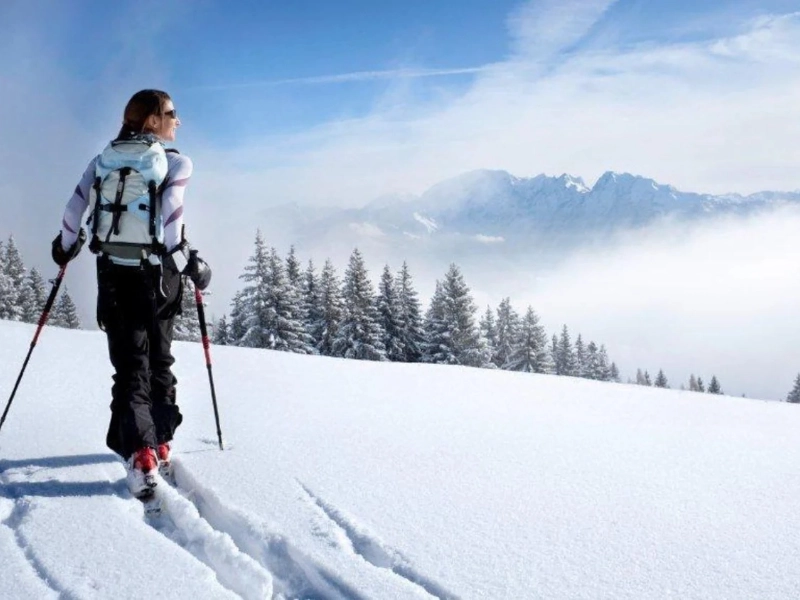
Even experienced skiers face dangers like avalanches. Preparing for your adventures can help prevent dangerous situations. One major cause of collisions is not paying attention to surrounding skiers. Maintain a predictable skiing line to help others avoid you.
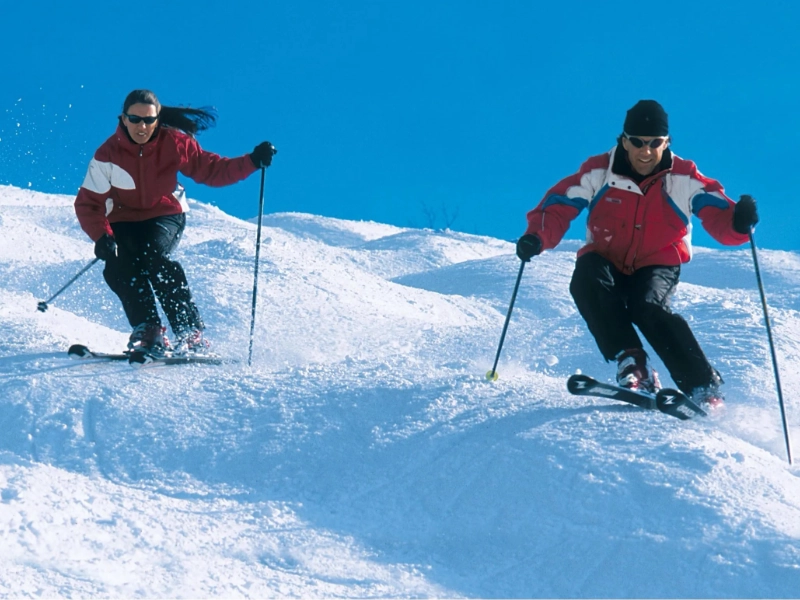 Especially for beginners, skiing in a group is safer. It ensures you have someone to call for help in emergencies and fosters camaraderie through shared experiences. Having multiple perspectives can also help assess risks and navigate challenging terrain, making the experience more enjoyable.
Especially for beginners, skiing in a group is safer. It ensures you have someone to call for help in emergencies and fosters camaraderie through shared experiences. Having multiple perspectives can also help assess risks and navigate challenging terrain, making the experience more enjoyable.